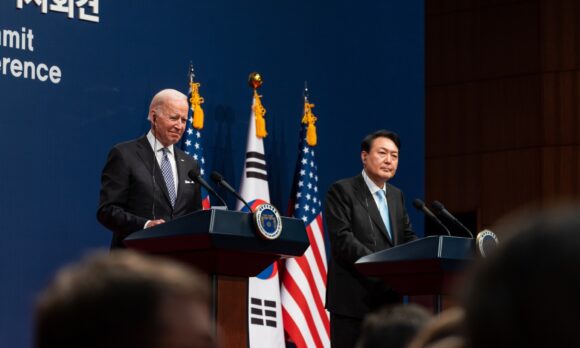Part of Indo-Pacific Security
Building a Modern, Networked Indo-Pacific Regional Security Architecture
The Program’s work helps chart a course for the United States as it seeks to update its Indo-Pacific alliances and partnerships and build a more networked regional security architecture. IPS research examines how the United States can strengthen its existing relationships with high-capability allies and partners, with a focus on Japan, South Korea, Australia, the Philippines, and Taiwan. In the face of shared challenges spanning diplomacy, technology, security, and values, the Program analyzes the key pillars of these relationships and provides recommendations for how U.S. policymakers can strengthen coordination to maximize opportunities and manage challenges. The Program generates detailed agendas to build out formats including the Quad (Australia, India, Japan, and the United States), AUKUS (Australia-United Kingdom-United States), and the U.S.-Japan-South Korea trilateral. Those groups are central to constructing a more networked regional security architecture to bolster the rules-based order in the Indo-Pacific.
Highlights
-
Forging an Alliance Innovation Base
America’s current approach to allies on technology innovation and protection remains a work in progress....
By Daniel Kliman, Ben FitzGerald, Kristine Lee & Joshua Fitt
-
Contested Spaces
As the competition between the United States and China to shape the course of the 21st century intensifies, Southeast Asia has become a contested space....
By Patrick M. Cronin, Abigail Grace, Daniel Kliman & Kristine Lee
-
Why the United States Needs a Digital Development Fund
What the executive branch and Congress can do to counter China’s expanding digital footprint across the developing world....
By Daniel Kliman














